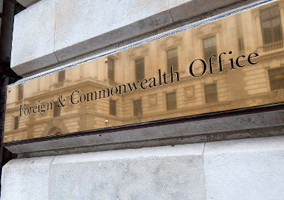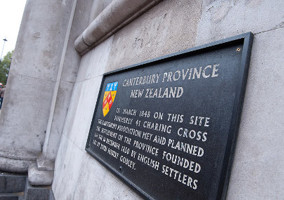Aid charities say that government investments in harmful fossil fuels are “undermining efforts” to tackle the climate crisis.
The global charity Tearfund estimates that fossil fuel investments held by the CDC Group (CDC), a financial vehicle owned and funded by the government to promote growth in poor regions of the world, are worth at least £700m.
Campaigners also point out that sweeping cuts to government aid spending have forced charities to close environmental programmes overseas even while these harmful investments continue.
Tearfund’s analysis was included in written submissions to an ongoing parliamentary inquiry into the future of aid. The submissions were published last week.
More than £2bn has been cut from the government’s aid budget this year, a move described as “devastating” by leading charities.
Fossil fuel investments
The CDC was founded by the UK government to invest in business growth in poorer countries, as a key part of its development strategy.
The Foreign, Commonwealth and Development Office (FCDO) is the sole shareholder in the CDC but cannot intervene directly in its investment decisions.
CDC received around £3.5bn from the old Department for International Development between 2015 and 2020, with a further £779m promised this year from FCDO, according to Tearfund’s submission.
Tearfund said that CDC’s portfolio of fossil fuel investments is worth at least £700m, based on the most recent data.
The charity told MPs that, because CDC will be exempt from some government rules limiting harmful investments, “over 90% of the value of CDC’s current direct investments in fossil fuels would be allowed under its current policy”.
This will “undermine efforts” to meet global environmental standards, Tearfund said, adding that the investments will “lock in high carbon emissions for generations to come, breaking the carbon budget, and guaranteeing higher levels of global warming”.
‘Programming is getting cut’
Other charities told Civil Society News that the loss of government funding was forcing the closure of programmes to support environmental work overseas, at the same time that CDC’s harmful investments continued.
Jo Hook, managing director of the aid charity Temwa, said that aid cuts meant her organisation lost a £250,000 government grant which funded a project in Malawi to adopt more sustainable farming practices.
Hook said that the project was “ready to go” before FCDO funding was placed on hold and then removed. The cuts are “devastating”, she said, and will affect Temwa’s work helping people impacted by extreme flooding and extreme drought caused by climate change.
She added that governments and communities around the world “should be doing everything in our power to reduce CO2 emissions. So the fact that the government are increasing support or subsidies to the fossil fuel industry, and decreasing support to tackle climate change, is mind-boggling.
“I am really confused and outraged by it”.
Catherine Petengell, the interim director of Climate Action Network UK, said that “our members are reporting that climate-related programming is getting cut”, in spite of a commitment by the government to maintain spending on these projects.
She added that it had left her organisation “working a little bit in the dark. We don’t know where the cuts are going to fall on climate and environmental programming.
“At the moment we are just hearing from our members about programmes which either have been cut or may be cut. There is a lot of uncertainty”.
Related news











